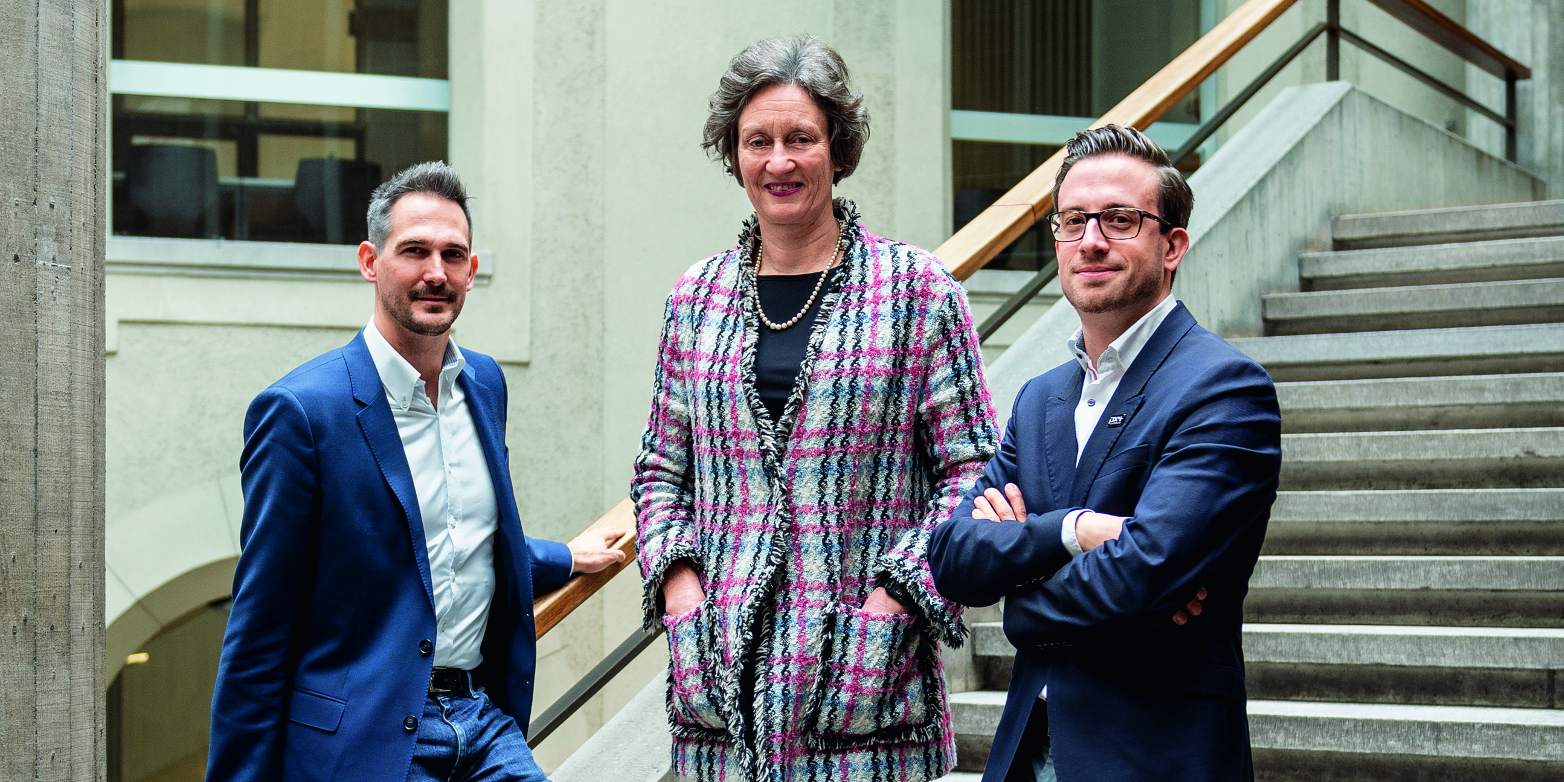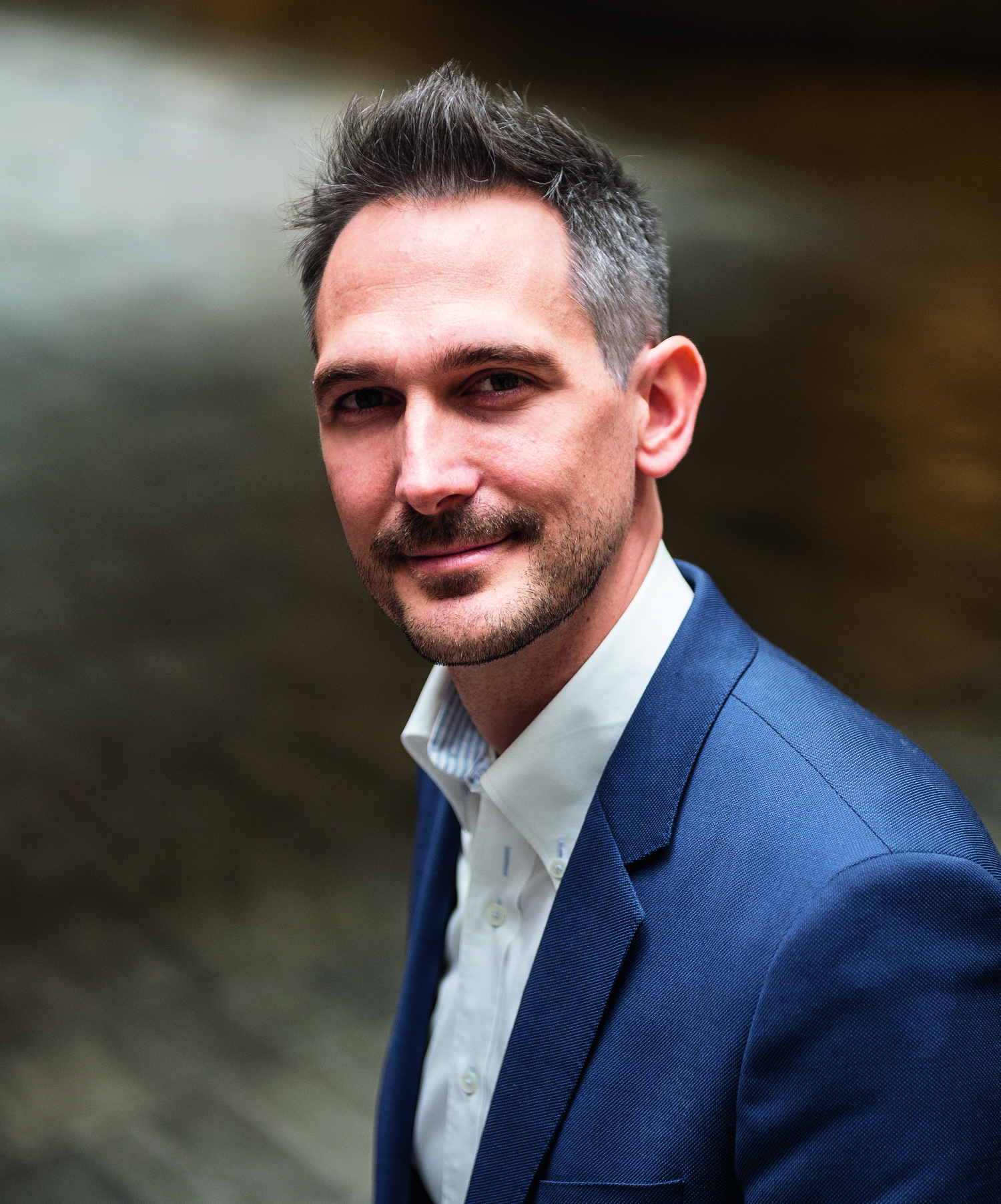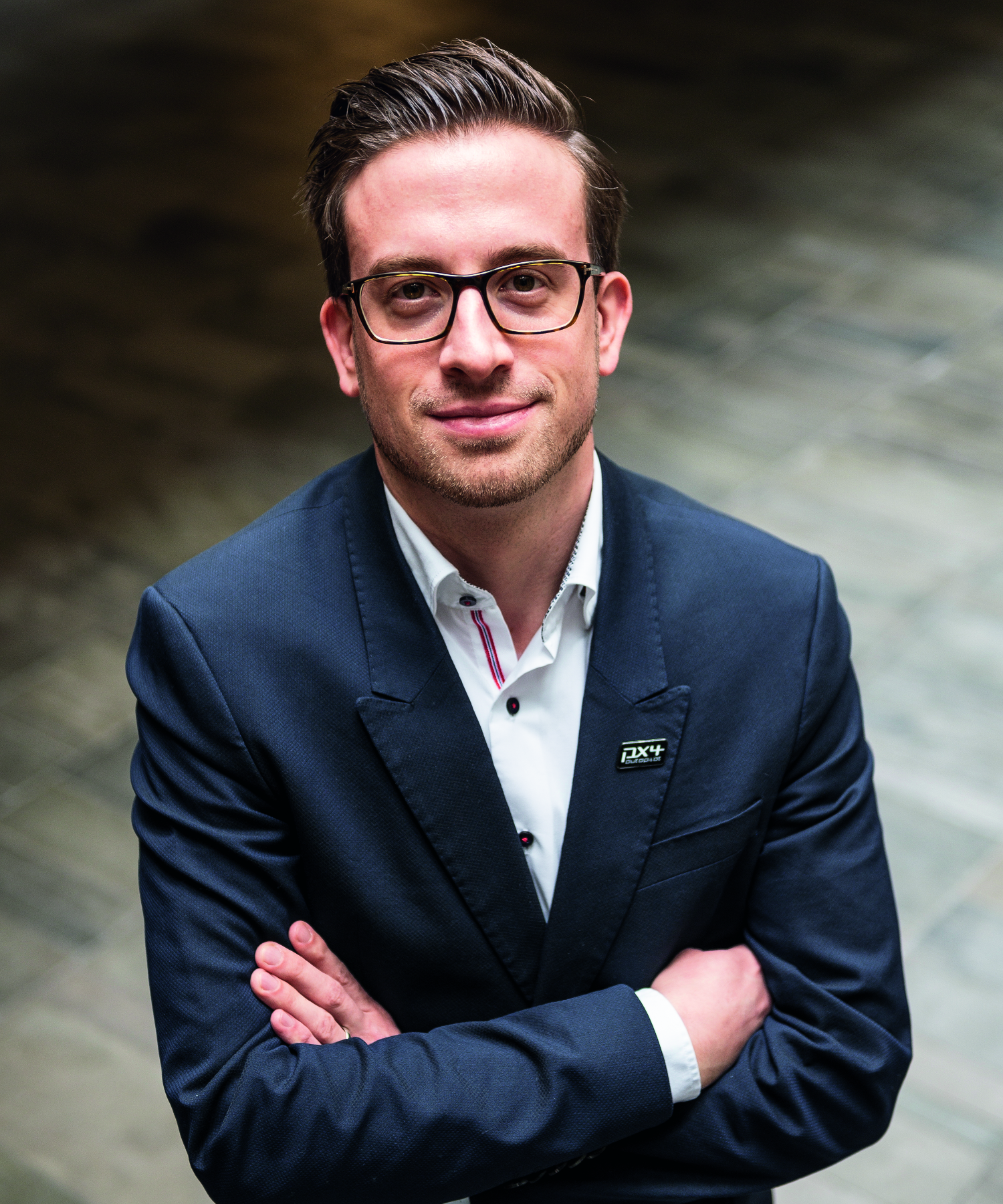Laying the foundations for success
What makes an ETH education so good – and what could make it even better? Rector Sarah Springman chatted to alumni Lorenz Meier and Kevin Sartori, founders of a drone software company.

Were your studies at ETH more of a help or a hindrance to becoming company founders?
Lorenz Meier: I started my first company when I was just 18, so it’s a tough question to answer. But I certainly wouldn’t say that my experiences at ETH were a hindrance!
Kevin Sartori: I also considered starting my own business when I was at secondary school, but I didn’t actually found a company. My studies at ETH helped set me on the right path.
What do ETH graduates need to succeed in today’s job market?
Sarah Springman: First of all, they need genuinely in-depth knowledge in a specific area. Having a firm grasp of the mathematical and scientific foundations of their chosen subject – for example robotics – is essential. This is the hallmark of an ETH education that defines an ETH graduate. There’s also an increasing demand for interdisciplinary skills nowadays. Our students learn those skills through projects, internships and similar schemes, but it’s typically something they pick up along the way rather than through formal teaching. That’s something we want to change.
As an employer, what would you say are the best qualities of ETH alumni?
Meier: Academically, ETH graduates are outstanding. They are acutely aware of the importance of quality and are very reliable. If they come to us straight after finishing their degree, however, they tend to lack professional, hands-on experience. So we have to invest a lot of time to get them up to speed in their daily work.
Sartori: What I really appreciate among people who have professional experience is their “self-awareness”; in other words, an understanding of their strengths and weaknesses and the willingness to learn whatever it is they need to improve.
How do you hope to achieve and foster that?
Springman: We’re in the process of launching a talent project that will see students receiving not only a certificate of their academic achievement, but also some documented proof of their methodological, social and personal skills. That includes aspects such as analytical capabilities and how they tackle problem-solving, but also civic engagement, communication skills, teamwork skills and self-reflection: what we do all the time without really thinking about them. Added value os created through awareness – and that’s something we want to encourage more.
Meier: I think that sounds great. Those are exactly the kind of things that interest us in job interviews.
But how can you measure those kinds of skills?
Springman: We’ve only just begun to look at how it could work. Our first step was to draw up a grid of the various skills, in part based on feedback from interviews with industry and academic partners. Now we are hoping to develop a software tool that would help students keep a record of relevant experience and feedback from projects. We have the best student team in the Formula Student Electric design competition (AMZ). They are world record holders with an amazing team spirit – and that’s the kind of thing they should be documenting as a basis for future job interviews for example.
What were the most valuable things you learned at ETH?
Sartori: I did a technical study programme at ETH and an MBA in Berkeley. The main thing I took from ETH was the ability to adopt a methodical and analytical approach. That way of thinking and analysing things is as helpful at work as it is in daily life.
Meier: Industry changes fast, yet many of the lectures I attended on my computer science study programme are just as relevant now as they were back then.
Where might there be room for improvement?
Meier: Here’s an example. Imagine being a tutor on the “Introduction to Computer Science 1” programme for mechanical engineering students in their third semester and one of them says “but I’m studying engineering, why do I need to learn that?” – you really have to ask yourself where that person is coming from! I would guess that 90 percent of them will end up writing software at some point in their career, because virtually everything in industry is now software-defined.
Springman: That’s why we’re now running a major digitalisation project throughout ETH aimed at embedding computer science much more firmly in our degree programmes. Today’s students of biology, for example, must be given the opportunity to acquire bioinformatics skills and deploy machine learning.
Was there anything you felt was missing at ETH?
Meier: I would like to see even more scope for entrepreneurial activities in all the academic departments along with appropriate recognition in the form of credits, just like the focus projects in the Department of Mechanical and Process Engineering. I worked with other students to develop the Pixhawk drone software alongside my Master’s degree. I succeeded in the end, but that double workload was pretty extreme and I was sometimes on the verge of failure.
So how did you manage to keep your entrepreneurial streak alive?
Meier: I was simply determined to build a flying robot! But I faced a lot of problems at first because the study programme in my department didn’t envisage that kind of project at all. In the end I somehow managed to work around this. When I realised, eventually, that I couldn’t achieve what I wanted on my own, a combination of semester papers, Bachelor’s dissertations and Master’s theses proved to be the solution. I ended up putting together a team of students who were two years older than me. I was fortunate that my professor was willing to go along with it!
Sartori: One of my best experiences during my studies was the focus project in the engineering department. That was when I set up the Formula Student team with five other students. There were plenty of credits, but we had to work incredibly hard. Some of the team, including me, added on an extra semester. But it was certainly worth it in the end. Employers have always acknowledged the value of that hands-on experience and now, as an employer myself, I also find myself looking for candidates with that kind of experience.
Springman: Some of the academic departments are more progressive than others when it comes to such projects. We received feedback from students in one of the recent rounds of the ETH+ initiative, asking for more multidisciplinary projects in our Bachelor’s degree programmes. Maybe we can start a pilot project soon with two or three departments. A few years ago we developed ETH Week, an event where we bring together some 200 students from all academic departments to work on an important global problem. And soon we’ll be kicking off our ETH Month programme in Singapore, a correspondingly longer version of ETH Week that also allows students to gain credits.
ETH runs special programmes to promote entrepreneurship. Which did you benefit from most?
Meier: I was a faithful ETH student so I was allowed to take advantage of almost all the programmes, including an Excellence Scholarship, Pioneer Fellowships and so on! The Pioneer Fellowships programme is very well positioned to take students with the right technical aptitude into the wider world of industry and a start-up career. Nevertheless, I still think that ETH needs to slightly rethink its spin-off policy. It’s obviously great that 95 percent of spin-offs are still in business five years later, but that also means that many of them tend to stay small, far short of a Google or Facebook. In terms of international competitiveness, preference should be given to creating a few larger companies that have the potential to become global market leaders. That’s something that doesn’t happen often enough here.
What would be a better way to achieve that in your opinion?
Sartori: American universities focus on nurturing the winners, the ones they think could become really big. They don’t spend time on average potential. They end up with role models that offer real inspiration to students.
What kind of relationship do you have with ETH as alumni?
Meier: I certainly see the relationship as important and I often give lectures to students, but I think it could be even stronger. ETH alumni are in senior decision-making positions, both at home and abroad, and if there was more of a sense of responsibility towards their alma mater and ETH graduates, then you could generate a much stronger network effect than the one we have today.
Sartori: I was in the ETH Alumni Chapter in Silicon Valley. It was easy to make contact with other alumni when I was abroad, but in Switzerland ETH alumni feel less of a responsibility to each other. It’s all very different in Berkeley, where they educate students to help others right from the start – and that support doesn’t just stem from students themselves, but also from the career management and marketing teams. I still get a lot of messages today through social media and other channels, for example “I have a colleague who would also like to work in this field, why not get in touch?” or “What can I do to help you?”, things like that. I think ETH still needs to develop that kind of culture more. The whole mechanism of “giving back” is also much stronger at Berkeley. Students start making donations before they even become alumni. I started supporting the ETH Zurich Foundation based on my experiences in Berkeley.
And what does ETH expect from its alumni?
Springman: I wish our graduates success at work and also that they find fulfilment in other areas of their lives, including aspects such as social innovation and generally making the world a better place. Our hope is that what they pick up from ETH will give them good foundations to build on. Obviously, I also hope that the money the taxpayers and ETH have invested in their education will create added value. It’s important for alumni to show society what ETH has to offer and why it makes sense to invest in ETH.
Globe - The future makers
The current issue of Globe focuses on the anniversary of the Alumni Association and devotes the pages that follow to the ideas and achievements of ETH Zurich graduates. Globe presents a variety of individuals, all of whom – in their own personal way – are helping to shape the future of Switzerland and the world.



